Contact Info
- 6th Floor, I & M Building 2nd Ngong Avenue, Upper Hill
- +254 (0)20 2985000; +254 (0)729 111031 / +254 (0)731 000065
- info@pasgr.org
- Office Hrs: Today 9.00am to 6.00pm
PASGR is governed by a Board currently chaired by Prof. Gerald Ouma, Professor of Higher Education and the Senior Director of Institutional Planning, Monitoring, and Evaluation at the University of Pretoria, South Africa. The members are eminent personalities reflecting global leadership as well as regional and international credibility in African policy-making, research, and higher education.
The Board is responsible for providing high-level strategic guidance during the initial implementation of PASGR programmes, approving programme and organisational design, and reviewing work programmes and budgets.
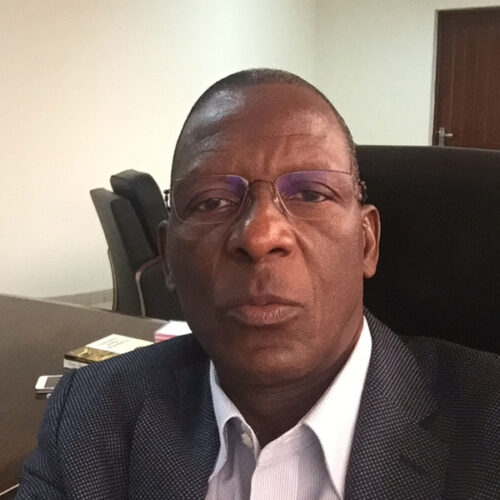
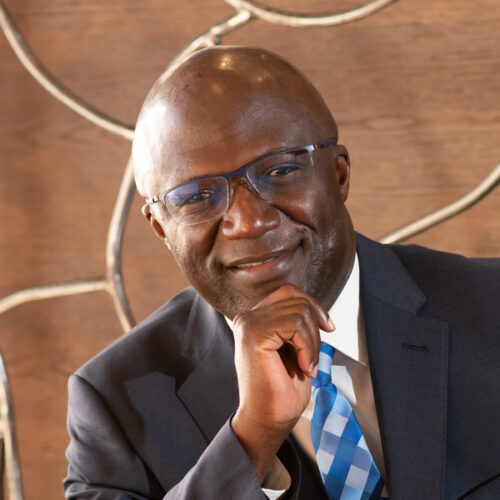
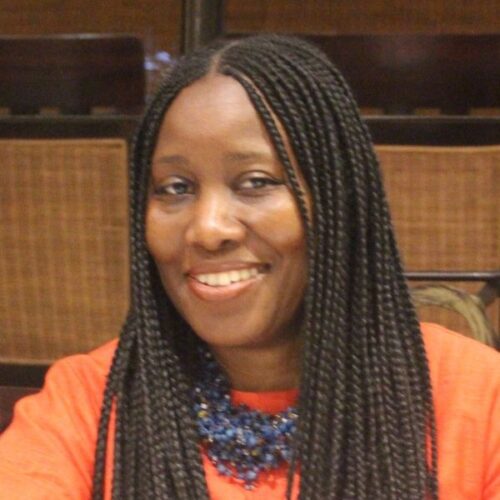
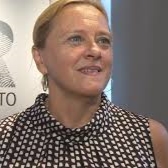

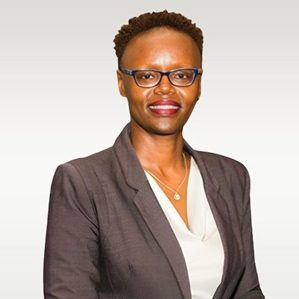
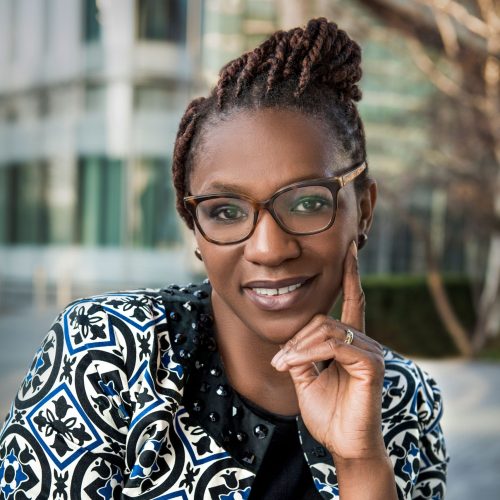
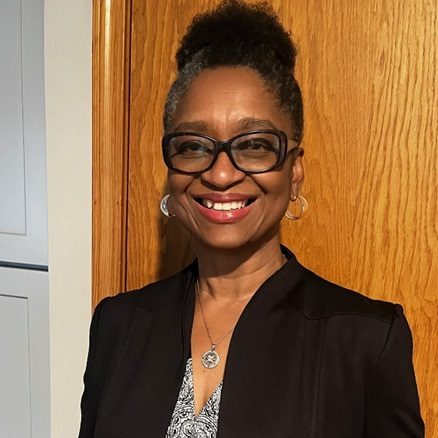

Professor Narciso Matos is the immediate past Chair of the Board of Directors of the Partnership for African Social and Governance Research. He is currently the Vice Chancellor of the Polytechnic University in Mozambique, of which he was Pro Vice Chancellor from 2015 to 2017. He is also a member of Mozambique’s National Council for Higher Education and Mozambique’s Academy of Sciences and a member of the Board of Directors of the University Foundation for the Development of Education. Previously, he served as the Executive Director of the Foundation for Community Development (2007-2014), Director of the International Development Program of the Carnegie Foundation of New York (2000-2007), Secretary General of the Association of African Universities (1995-2000), and Associate Professor and Rector of the University Eduardo Mondlane (1990-1995). He holds a PhD in Chemistry from the University of Humboldt in Germany (1985) and a License in Chemistry from the University Eduardo Mondlane in Mozambique (1975).

Gerald Wangenge Ouma is a Professor of Higher Education and the Senior Director of Institutional Planning, Monitoring and Evaluation at the University of Pretoria (UP). In this role, he oversees institutional strategy, enrolment planning, institutional research and analytics, academic planning, quality assurance and enhancement, and monitoring and evaluation. Prior to joining UP, he was an Associate Professor of Higher Education at the University of the Western Cape where he also coordinated the collaborative Higher Education Master’s in Africa Programme and a Doctoral Programme in Student Affairs.
Prof. Ouma has an extensive publications record, has participated in many higher education initiatives in Africa and internationally, and has served on various national panels on various aspects of higher education policy in South Africa. He is a member of University South Africa’s Funding Strategy Group, serves on the Advisory Committee of the Albert Luthuli Leadership Institute (UP) and previously served on the Board of the African Network for Internationalisation of Education (ANIE). Prof. Ouma was in the team that prepared the declaration and action plan from the first African Higher Education Summit on revitalising Higher Education for Africa’s Future that took place in March 2015 in Dakar, Senegal. He holds a PhD degree in Higher Education Studies from the University of Cape Town.

Ama de-Graft Aikins is a Professor of social psychology and a British Academy Global Professor at the Institute of Advanced Studies, University College London. She received her PhD in social psychology from the London School of Economics and Political Science (LSE), completed postdoctoral training at the University of Cambridge and has held teaching and research positions at the LSE, University of Cambridge and University of Ghana. In 2015, she became the first female full professor of psychology at the University of Ghana, where she has a tenured position.
Prof. de-Graft Aikins’ research and publications focus on the social psychology of chronic illness, and on the psychosocial and structural drivers of Africa’s chronic non-communicable disease (NCD) burden. She also has a strong interest in arts-in-health, and the history of psychology in Africa and its intersections with critical theory and African Studies.
She has led interdisciplinary NCD research projects based in Africa and Europe with colleagues from Universities of Ghana and Amsterdam, University College London and New York University. She has NCD/health policy experience with Ghanaian, West African and global health institutions including Ghana’s Ministry of Health, West Africa Health Organization (WAHO) and the World Health Organization (WHO). She has supervised and mentored graduate students based in Ghanaian, European, American and Australian universities on social science and health systems aspects of Africa’s NCD burden.
She is currently principal investigator for Chronicity and Care in African Contexts, a project funded through her British Academy Global Professorship award. The project aims to explore how social responses to chronic conditions can shape public engagement and intervention models for chronic care in African communities on the continent and in the diaspora.
Prof. de-Graft Aikins has extensive university administrative experience, having served as the Director of the Centre for Social Policy Studies, Vice Dean of the School of Graduate Studies and Dean of International Programmes at the University of Ghana (UG). The latter role involved facilitating new academic partnerships with African, Asian, European, North American, and Latin American and Caribbean universities and representing UG abroad on internationalisation initiatives. In addition to PASGR, she serves on several boards and advisory groups, including the Independent Advisory Board of PEBL West Africa, and the Scientific Advisory Board of the World Pandemic Research Network.
She is a fellow of the Ghana Academy of Arts and Sciences and an international member of the US National Academy of Medicine.

Lise Rakner is Professor of political science at the University of Bergen. Her research interests cover the fields of democratization and autocratization, with particular emphasis on human rights, electoral politics, political parties and processes of democratic backsliding. Rakner’s work also extends to political economy, with an emphasis on economic reforms, taxation, business associations, budget processes and aid effectiveness. She has conducted a number of governance assessment analyses for international agencies and donor governments. She holds an adjunct position at the Chr. Michelsen Institute (CMI), Bergen. She is the PI of the research project Breaking BAD: Understanding Backlash Against Democracy in Africa funded by the Research Council of Norway (FRIHUMSAM), see https://www.democraticbacklash.com/. She is also PI of Autocratization Dynamics: Innovations in Research-Embedded Learning (INPART 2021-2025) and she heads the Zambia country study of Political determinants of sexual and reproductive health in Africa, funded by the RCN, Globvac).

Director of the Institute for Development Studies (IDS), at the University of Nairobi

Kananu is the Founding Partner of KM Associates and Course Correct Consulting. She practices law with a focus on dispute resolution and risk advisory. She specializes in advising on risk avoidance and mitigation, company restructuring, commercial contracts, financial arrangements, and property disputes. She provides training to clients on risk management and collaborates with specialists in different fields from finance, governance, AML/CTF, employment, compliance.
She is an alumnus of The Kenya High School and Nagpur University, India. Kananu is a trained arbitrator, mediator, and negotiator. Kananu has had work experience in London with well-regarded firms: White & Case, Slaughter & May and Stephenson Harwood.
She is a Board Member of the Nairobi Centre for International Arbitration, she serves as a National Committee Member for International Lawyers for Africa, she is also a member of the Chartered Institute of Arbitrators, and an accredited mediator on the roll of Strathmore Dispute Resolution Centre and can be reached at kananu@coursecorrect.co.ke.

Kathryn is the Director of ODI’s Politics and Governance programme, managing ODI’s team of political economy experts. She has been widely acknowledged as an expert on politics, peacebuilding, business and human rights in conflict-affected settings and corporate accountability. A fluent French speaker, Kathryn has over 25 years’ experience of conducting and managing research and providing policy advice at a senior level in multilateral and bilateral institutions and NGOs. She has geographical expertise on politics and governance questions in Africa, notably West Africa.
As a member of ODI’s Leadership Team, Kathryn currently chairs ODIs Decolonising Research and Policy Taskforce responsible for overseeing the implantation of ODI’s just and equitable partnerships strategy to transform the way policy research and engagement is conducted.
Before joining ODI, Kathryn worked for the OECD as Head of Unit and Head of the International Dialogue on Peacebuilding and Statebuilding Secretariat and co-authored their 2015 States of Fragility report. She also previously worked for the Irish Government and spent eight years as a researcher and policy advisor for INGOs Oxfam and ACORD. As a consultant, Kathryn worked with various bilateral and multilateral institutions, including DfID, Danida and AfDB.
Kathryn has a PhD in Politics and International Relations from Nuffield College, University of Oxford and an MA in Area Studies (Africa) from the University of London’s School of Oriental and African Studies (SOAS).
Kathryn was the Chair of Expert Working Group of a Commission of Inquiry into oil and gas pollution in Nigeria (the Bayelsa State Oil and Environmental Commission) and a member of the Board of Trustees of RAID (Rights and Accountability in Development) and EPIC-Africa.

José Jackson-Malete is the Co-Director of the Alliance for African Partnership (AAP) at Michigan State University (MSU) in East Lansing, Michigan, USA. In her role, she provides strategic leadership for AAP, focusing on fostering innovative partnerships between MSU, African universities, and international collaborators. Her work emphasizes strategic engagement, robust governance structures rooted in co-creation, capacity building, particularly in research and innovation management, and securing diverse resources to ensure AAP’s sustainability and impact. Dr. Jackson-Malete conceptualized and oversees the AAP African Futures Research Leadership Program, a flagship initiative supporting the career advancement of early-career African researchers.
She holds a PhD and Masters degree in Food Science from Michigan State University and Cornell University, respectively, and a Bachelor’s degree in Chemistry from the University of the West Indies, Mona Campus, Jamaica. Her research focuses on the processing, quality, and safety of indigenous fruit and vegetable products, contributing to food and nutrition security while enhancing community livelihoods. Her research has received funding from organizations such as the Gates Foundation, USAID, US Department of State, EU Framework 6, SASSCAL, and SIDA. She has mentored, examined and supervised graduate students across Africa and the Caribbean.
With over 25 years of experience in capacity building and partnership development across Africa, North America, and the Caribbean, Dr. Jackson-Malete is a leader in research management. A long-standing member of the Southern African Research and Innovation Management Association (SARIMA) since 2004, she served as its President (2015–2017). During her tenure, she spearheaded the professionalization of research management in Africa and co-founded the Research Management International Professional Recognition Council (IPRC), where she currently chairs the Technical Review Committee. She has implemented numerous research management programs across Africa, supported by key funders such as WHO TDR, IDRC, National Research Foundation of South Africa, DFID, UKRI, and the Wellcome Trust. Dr. Jackson-Malete is a passionate advocate for equitable partnerships between the Global North and South, delivering workshops and seminars to promote sustainable collaboration.
Before joining MSU, Dr. Jackson-Malete held faculty and leadership positions at the Botswana Institute for Technology Research and Innovation (BITRI), the University of Botswana (UB), the National Food Technology Research Center (NFTRC), and the University of the West Indies, Mona Campus, Jamaica.



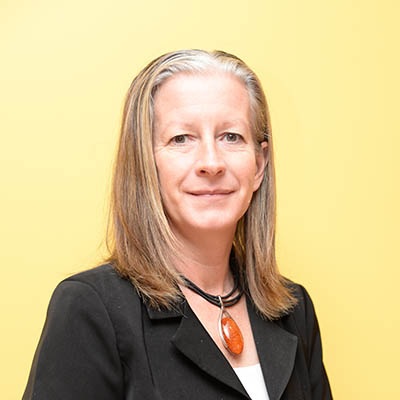
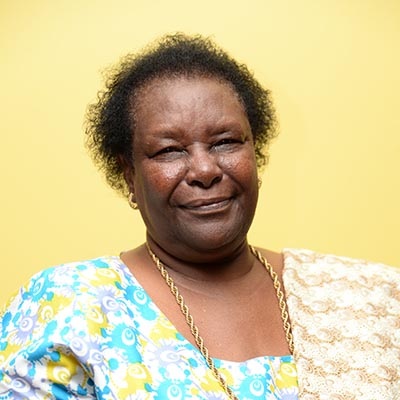
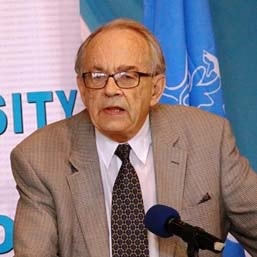

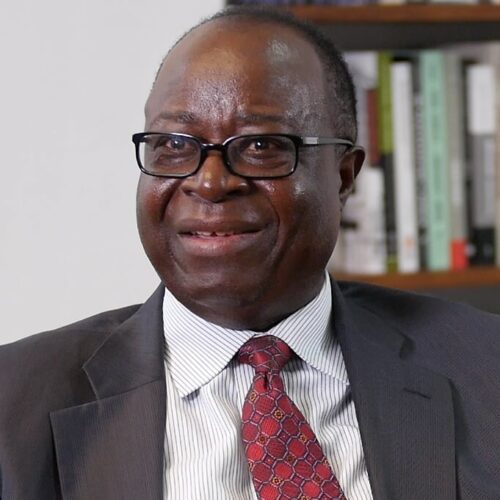



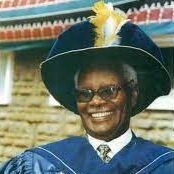





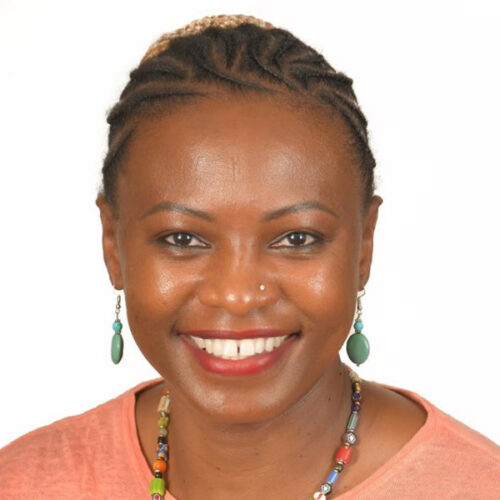

















Anthony Mveyange is a passionate Tanzanian development economist whose research and policy interests include (but not limited to) inequality, poverty, health and education, agriculture, natural resources, international trade, trade policy, economic growth, and development in Africa. Anthony has vast experience in designing and evaluating projects and programmes, policy advisory, designing and overseeing thematic research-related initiatives in Africa.
Prior to joining PASGR, Anthony was a Regional Research and Learning Director at TradeMark East Africa (TMEA), based in Nairobi, Kenya where he directed research and learning portfolio in ten Eastern African countries (Tanzania, Kenya, Uganda, Rwanda, Burundi, Ethiopia, South Sudan, Malawi, Somaliland and Eastern DRC). He also led a six-countries (i.e., Tanzania, Kenya, Burundi, Rwanda, Uganda and South Sudan) research initiative funded by Bill and Melinda Gates Foundation through the African Economic Research Consortium (AERC) on the impact of COVID-19 pandemic on East Africa Economies and consulted for Porticus Africa as an independent Monitoring, Evaluation and Learning (MEL) advisor on Early Childhood Development and Child protection projects in Kenya, Tanzania, Zimbabwe and South Africa.
Before joining TMEA and PASGR, Anthony worked as a research economist in the World Bank Research Development Group in Washington, DC. He is also a fellow of the East Africa Social Science Translation (EASST) Collaborative at the Center for Effective Global Action (CEGA) and the founding member of the Network of Impact Evaluation Researchers in Africa (NIERA) based in Nairobi, Kenya. In 2020, Anthony was also nominated by the World Manufacturing Foundation as among 12 global experts to produce a White Paper on restoring Global Value Chains in the wake of the COVID-19 crisis. He is a contributor to Africa in Focus at Brookings Institute in the United States, a member of the INCLUDE Knowledge Platform which brings together Dutch and African scholars, and a member of the Advisory Board of the African Cities Research Consortium at the University of Manchester, United Kingdom.
Previously, he consulted for the World Bank Group, Strategic Impact Evaluation Fund of the World Bank, United Nations University World Institute for Development Economics Research (UNU-WIDER), Amref Health Africa and advised the governments of Kenya and Tanzania.

Ms. Helen Ambasa is a certified globally engaged leader, lawyer and accredited governance auditor with over 19 years’ experience in Kenya in both the public and private sector. She is well versed with the Kenyan legal system and regulatory environment as well as the global operating environment and prides herself as a trailblazer in thought leadership. She is a member in good standing of the Institute of Certified Secretaries of Kenya and the Law Society of Kenya. On 10th April, 2015, she was feted by the Institute of Certified Secretaries for her outstanding contribution to the activities of the Institute and profession at large.
She has previously served as a Board member on the NITA Sectoral Training Committee as well as the Recruitment Panel for Commissioners to serve on the Teachers Service Commission.
When she’s not influencing decision-making or shaping agenda in boardrooms, she can be found with her head buried in an engrossing book or working out.

6th Floor, I & M Building
2nd Ngong Avenue, Upper Hill
P.O. Box 76418-00508
Nairobi, Kenya
Email: info@pasgr.org
Tel: +254 (0)20 2985000;
+254 (0)729 111031 / +254 (0)731 000065
Legal counsel provided by Hurwit & Associates and Muthoga Gaturu & Co. Advocates